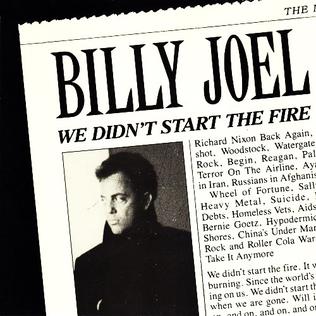If you’re here you are probably familiar with the FI/RE movement, or Financial Independence / Retire Early. You’ve heard stories of people who retired in their 30’s: rockstars like Mr. Money Mustache and Millennial Revolution have sensationalized saving and investing. These stories capture our imaginations, because most of us like the sound of walking away from our jobs and traveling the world at 35. But what if that lifestyle isn’t for you? What if you aren’t interested in living in your van down by the river (if you haven’t already sold your van and just ride your bike everywhere)? Or maybe you already live on only one income because your spouse stays home with the kids? What if there are aspects of most FI/RE plans that just can’t work in your location or for your family? Or what if retiring early just isn’t what you want to do?
Financial Independence isn’t a race, it’s a slow burn. You don’t have to sell your cars and live off rice and beans to reach FI. I always find it frustrating when I hear FIRE couples who are dual income no kids talk about saving 70% of their income. That’s a sprint towards retiring early and oftentimes they’re making the kinds of sacrifices that I’m not willing to make. Whether intentionally or not, they make it feel like an all or nothing game. That’s discouraging if you’re only making 50k a year and couldn’t save that way even if you wanted to.
Some things are valuable enough that they are worth making what some would categorize as a fiscally unwise decision.
Are you unable to tithe or donate to charity because you are maxing out your 401(k)? Are you putting off getting married or having kids until you are financially independent? I’m here to tell you that you don’t have to. Some things are valuable enough that they are worth making what some would categorize as a fiscally unwise decision. You have to decide what is valuable to you, and sometimes that isn’t going to be the better fiscal choice. The key is to figure out what you value most in life, and make decisions based off of that. Then from there, you can implement FIRE principles that work for you.
I married my wife, Courtney, at 23. She had just turned 21. Probably not the best choice we could have made, money-wise, at the time, but it was definitely the right choice for us as a couple. My wife quit her job as a late shift cashier at a grocery store, against the wishes of her father, but we made a plan as to how we were going to afford to live on a small income, and we stuck to it. Having a second income would have been handy for poor college students, but as I worked days and she worked nights, being able to spend evenings together was more important to us than the extra money.
Because of this, we had to be frugal in other places. We spent probably less than a thousand dollars total on the wedding, including the dress. Our previous decisions also paid off in ways we couldn’t have anticipated at the time. We recently had our first child and my wife became a stay at home mom, but because we were already living on just my income the transition was easy.
We also tithe our local church, support missionaries, and give to charity. This comes to somewhere around 14% of our income before taxes. So after paying a mortgage, raising a family, and giving thousands to charity, how do we manage to save between 25 and 30% of a single-income salary? That’s exactly what this blog is here to do: to tell the story of how an average Christian Midwestern family can reach financial independence.
Financial Independence isn’t a race, it’s a slow burn.
Consistency is the key to financial independence. Consistently earning, consistently saving, and consistently prioritizing what’s truly important over what’s not. The purpose of wisely managing your money is so that you have the freedom to do with it what you wish. Our priorities as a family have been:
- Courtney to be the primary caregiver at home
- Generous with our time and money at church
- Saving for the future
This means we can’t be a dual-income family. It also means we can’t work 60-hour weeks because have other obligations. But it doesn’t mean we just have to settle for a typical 40-year career. As I write this first post, my laptop on one knee and an infant on the other, I’m reminded that the journey towards financial independence can be a slow burn. So if you’ve found yourself asking, “Where’s the fire?” when reading about the headlong sprint of FIRE celebrities, you’re not alone. But that doesn’t mean there’s not a space for us. Here’s to reaching our goals at our own pace, in the way that works best for us.

What do you think? Are you like raging FIRE or smoldering FIRE? Let us know in the comments below!
